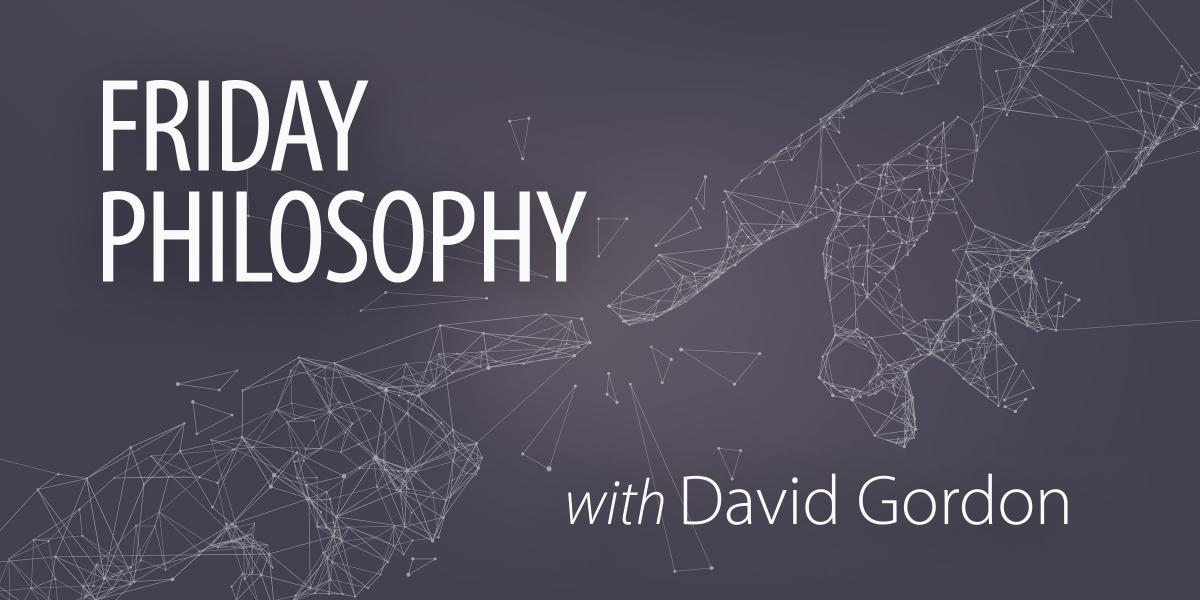[Common Knowledge and the Mysteries of Money, Power, and Everyday Life by Steven Pinker, (Scribner, 2025; 384 pp.)]
Steven Pinker, who is the Johnstone Family Professor of Psychology at Harvard University, has written a number of popular books explaining his research in a relatively easy-to-follow fashion—in brief, he is a master of high-level popular science writing. His books share a common theme, not to be confused with the “common knowledge” in the title of the present book, namely, that human history has, for the most part, been a tale of progress since the Stone Age and that the rise and spread of the values of the Enlightenment has had momentous good consequences.
His views have aroused much controversy, and defenders of tradition have assailed him, but he has earned a place in the public forum as the representative of a distinctive standpoint. I fear, though, that in When Everyone Knows, he has gone off the rails. He has taken a clever idea and used it as the key to explaining philosophy and religion. In doing so, he has substituted an idol of his own devising for the gods he professes to have swept away. Here is his clever idea:
Common knowledge draws on a momentous logical distinction. With private knowledge, person A knows something, and person B knows it. With common knowledge, A knows something, and B knows it, but in addition, A knows that B knows it, and B knows that A knows it. On top of that, A knows that B knows that A knows it, and B knows that A knows that B knows it, and so on, ad infinitum.
Pinker shows with great care how common knowledge enables people to coordinate their behavior with each other, and this, he claims, is responsible for all major social institutions. Sometimes, though, people need to ignore their common knowledge by “benign hypocrisy”; indeed, Pinker’s perspective on history is one in which people pretend to believe what they know isn’t so.
Pinker contends that rational people are Bayesians: they start with certain “priors” and then update their beliefs by what evidence discloses. Rational people shouldn’t assign high credence to their “priors” because this would permit them to ignore whatever evidence discloses:
On one interpretation, a prior is an inalienable conviction which needs no justification and may not be disputed, like a personal taste or an article of faith… People have whatever priors they have, and it’s nobody else’s business. The problem with this licentiousness is that it would mean that anyone can believe anything they want! Since a Bayesian posterior is just a prior multiplied by the likelihood of the evidence divided by the commonness of the evidence, if the likelihood of the evidence against your pet belief is embarrassingly high, just say that your priors are low, and you can jigger the posterior to be as low as you’d like! I consider it to be so implausible that Donald Trump would lose an election that even if a mountain of evidence suggests he did lose, it’s not enough to overcome my rock-bottom prior. Therefore, I rationally conclude that he probably won. [Pinker is here obviously not speaking in propria persona.] Now, that can’t be right.
In his view, people should ideally solve the problem of arbitrary priors by discounting them altogether and should then settle on what to believe by updating their “posterior probabilities” until they all agree.
Note the conjuring trick. Pinker has excluded from the start the possibility that philosophy and religion put us in touch with truth, meaning by that correspondence with reality. Further, he has illicitly taken for granted that our cognitive aim should be to maximize the probability that our beliefs are true. I should say, on the contrary, that a substantial part, though not all, of our cognitive aim is to arrive at the truth by argument from true premises.
Let’s illustrate what I mean by a thought experiment. Suppose you discuss various philosophical problems, e.g., “do we have indeterministic free will?” or “how do we know we’re not dreaming?”, and that we reach agreement with the people with whom we are talking. That agreement would be worth very little without consideration of the arguments used in arriving at the agreement.
Pinker is guilty of a related error, and it is this error that led me to charge him with conjuring up an idol of his own devising. Whenever he endeavors to explain some human trait or social institution, he asks, “How could evolution by natural selection have brought this about?” For example, people sometimes act to help others when there is no apparent benefit to themselves. How, Pinker wants to know, can evolution explain this? He altogether excludes the possibility that people’s beliefs and behavior have a non-evolutionary explanation.
Pinker has, in part, anticipated my contention that he has dismissed without argument the possibility that morality is objectively true, but his response begs the question. He says that, “All this is just the distinction from Moral Philosophy 101 between fact and value.” In saying this, Pinker shows he is ignorant of the state of play in contemporary philosophy, in which the objectivity of morality is very much a live issue. When he elsewhere tells us that philosophers define knowledge as “justified true belief,” one can barely suppress a smile When Everyone Knows That Everyone Knows since the publication of a famous article by Edmund Gettier in 1963, most philosophers have abandoned this definition. Continuing his discussion of fact and value, Pinker tells us that,
…the distinction is far from intuitive. People engineer their bundle of beliefs toward winning arguments rather than laying out logical entailments, so they stack the deck by jiggering their factual assumptions to make their moral arguments more compelling. The psychologists Brittany Liu and Peter Ditto demonstrated this cross-contamination by probing people’s beliefs in some textbook cases of moral reasoning. They presented people with the classic thought experiment of whether it is justifiable to stop a runaway trolley hurtling toward five unaware workers on the track by pushing a fat man over a footbridge onto its path, slowing the trolley and killing one to save five. This preposterous scenario is, of course, purely hypothetical, engineered to probe whether people think that some acts are inherently immoral by their very nature even if they result in better outcomes, in this case more lives saved.
But those respondents who did think it was intrinsically immoral to push the man also indicated, irrelevantly, that there’s no way a human body could stop a runaway trolley! Moving to a real-world case, Liu and Ditto noted that a principled opponent of capital punishment, one who believes it is inherently immoral for the government to take a life, should not care whether the death penalty deters murders. Yet in an amazing coincidence, these in-principle opponents of the death penalty also believed that it was, in practice, an ineffective deterrent. Moving in turn from correlation to causation, Liu and Ditto then presented people with purely moral arguments against the death penalty, and found that even in the absence of mentioning any facts, the arguments shifted the readers’ factual beliefs about its deterrent value.
To Pinker there is no such thing as the “intrinsically immoral”: it is obvious that we should choose the option with “better outcomes.”
Pinker’s ignorance of contemporary philosophy leads him to treat his own controversial views as obvious. He tells us also that in dealing with people of different races, we should be “color blind.” Should we? That is not a question that seems to have occurred to him. I wonder whether his use of the word “jiggering” will incite the woke crowd against him.


























